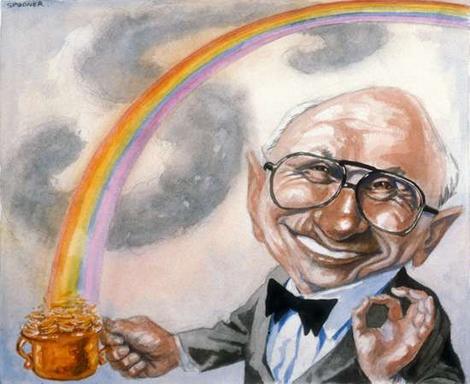I posted a message on the Independent newspaper website, to which a Keynesian replied as follows;
''Your theory of how this depression could be solved is founded on a fundamental error, innate to all "state-haters", that the free market always rights itself. You have not learned one jot from what Keynes said: that free markets AREN'T self-correcting. Manifestly they are not, because depressions existed even before there was state economic intervention. It is YOUR theory of that markets work perfectly that is seriously at fault. Keynes's theory aimed at explaining why it was at variance with the real world, where they don't.Just because there is an output gap, it doesn't mean it will be filled, because of the nature of expectations. Economies can be trapped in underemployment equilibrium. It was only the massive spending by all major nations in preparation for World War Two that kick-started the economy last time round.Cutting public spending massively while the rest of the economy is still contracting will only compound the problems we have and put us into an even more intense depressionary spiral.''
He didn't address my comments about the 1921 recession in America and how it was solved (spending and tax cuts) but he just offered the usual Keynesian diatribe about how markets don't work etc. Here was my response;
''Free market doctrines didn't fail because we've had a mixed economy. Central Banks and Governments control and regulate credit and money supply, and they allowed a credit boom.
I didn't say markets work perfectly. Human beings are imperfect, and therefore anything we create or operate in will not be perfect, but it is much better than Keynesian economics, which was proved to be a farce everytime some idiot implemented a fiscal stimulus.
Trade ended the Great Depression, not ''stimulus.'' Contrary to popular belief, Hoover was a fiscal and monetary expansionist. FDR increased state spending by 104%. Some say that he was doing well until 1937 when he tried to balance the budget. Yet if that was the case, in 1945, we would have relapsed back into depression when a budget deficit of 21% was turned into a surplus of around 2%. Yet the post war recession lasted 8 months and unemployment was 3%, compared to a 14% average for the Great Depression.
Between 1992-95, Japan tried 6 fiscal stimulus programmes totalling 65.5 trillion yen. They cut income taxes in 94, and in 98 they cut taxes by another 2 trillion. Overall, during the 1990's, Japan tried 10 fiscal stimulus programmes totalling 100 trillion yen, and not one of them worked. Gerald Ford tried a fiscal stimulus to alleviate stagflation in the 70's, and it failed.
We should cut spending massively now because it is worthless and there is no evidence that there is a multiplier effect. We should offset the deflationary effect of this with massive monetary stimulus through QE, interest rates and various open market operations.
However, I note that you didn't respond to my evidence about the 1921 recession, you merely insulted my comments instead of offering a critique of them. I hope you extend the same courtesy I have extended you if you choose to reply. ''
In Defence of Matthew Doyle
1 day ago

No comments:
Post a Comment